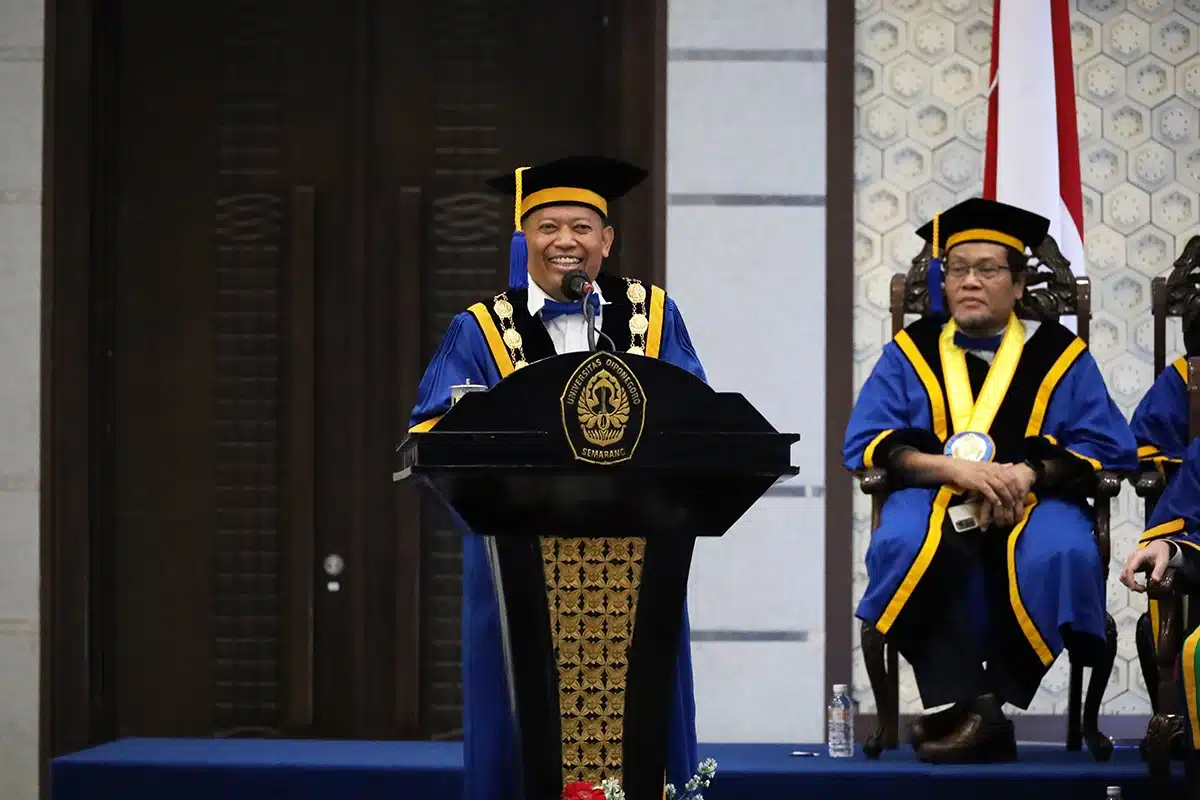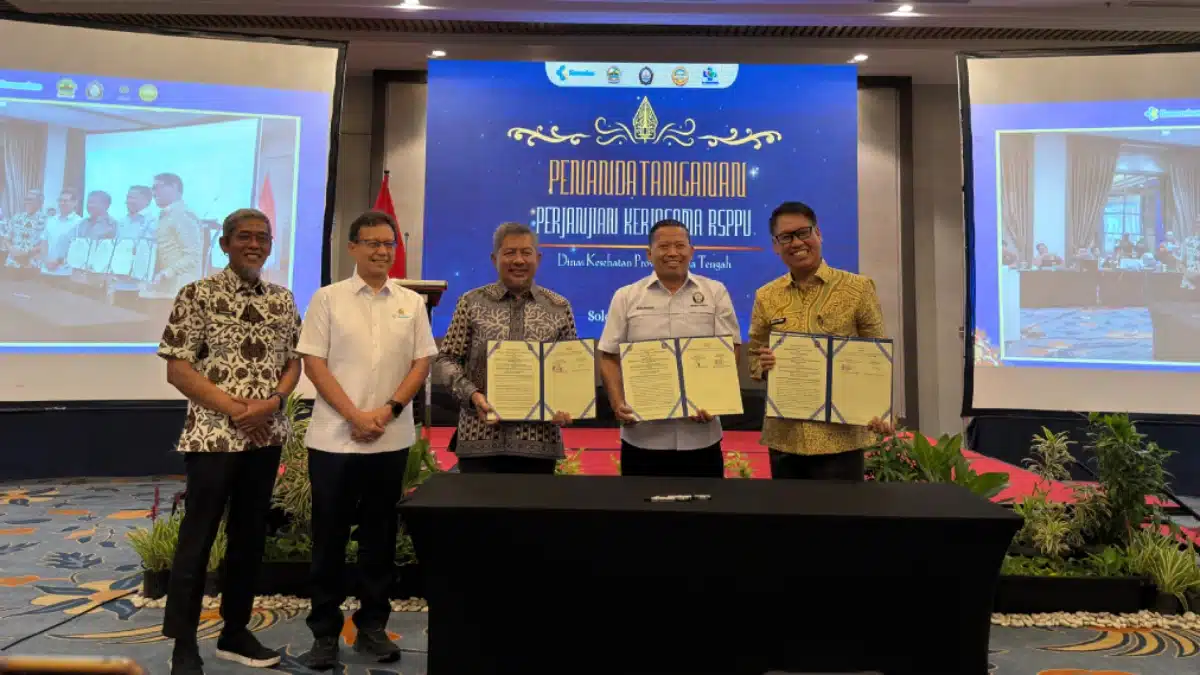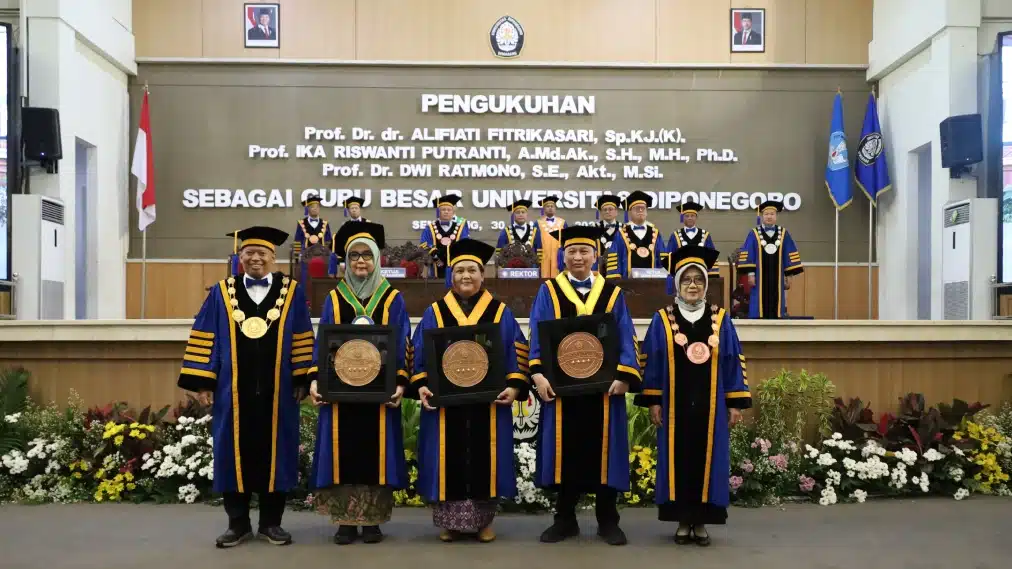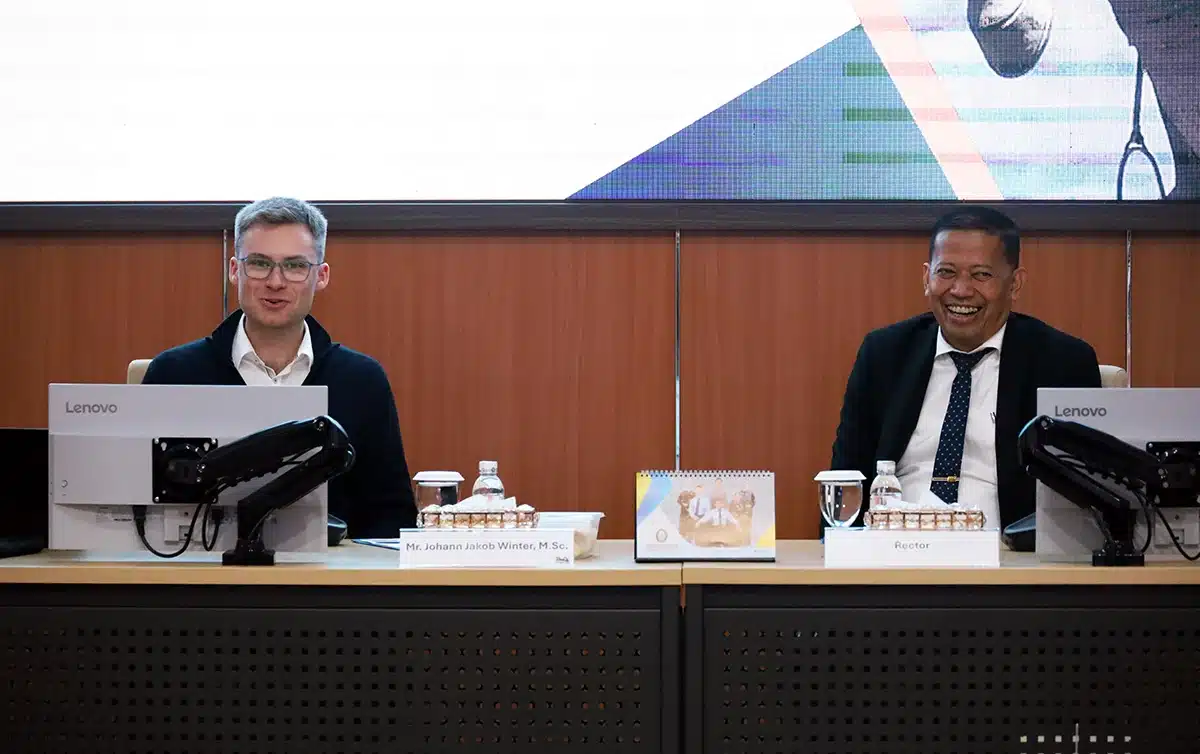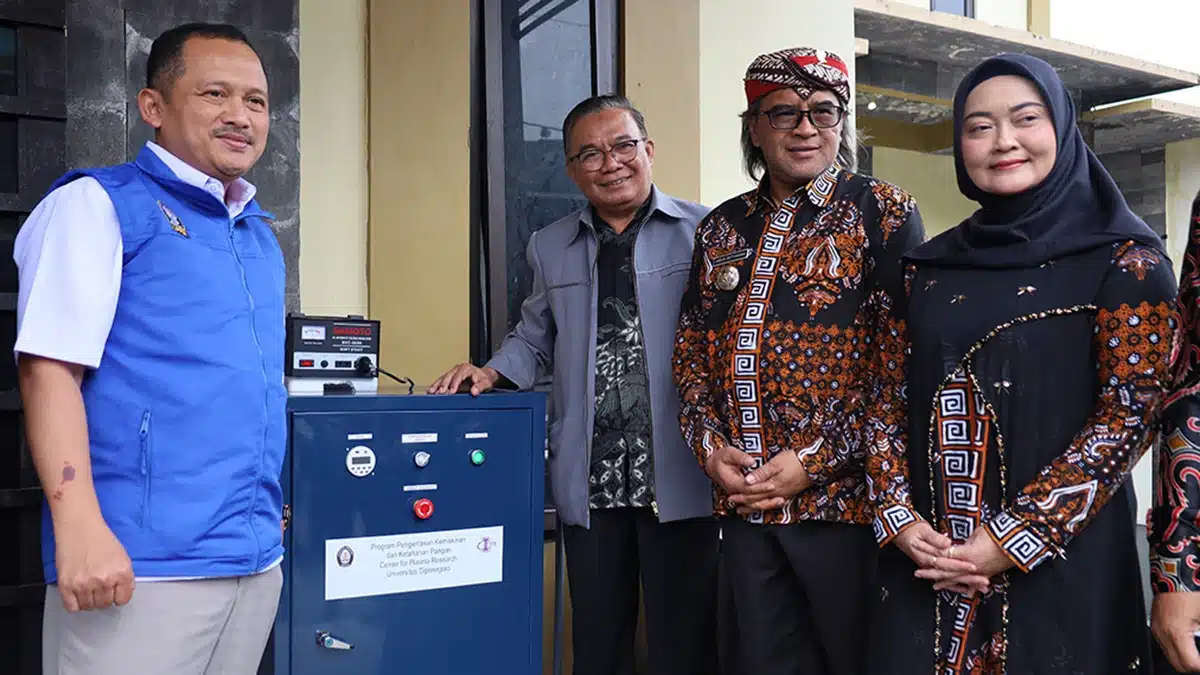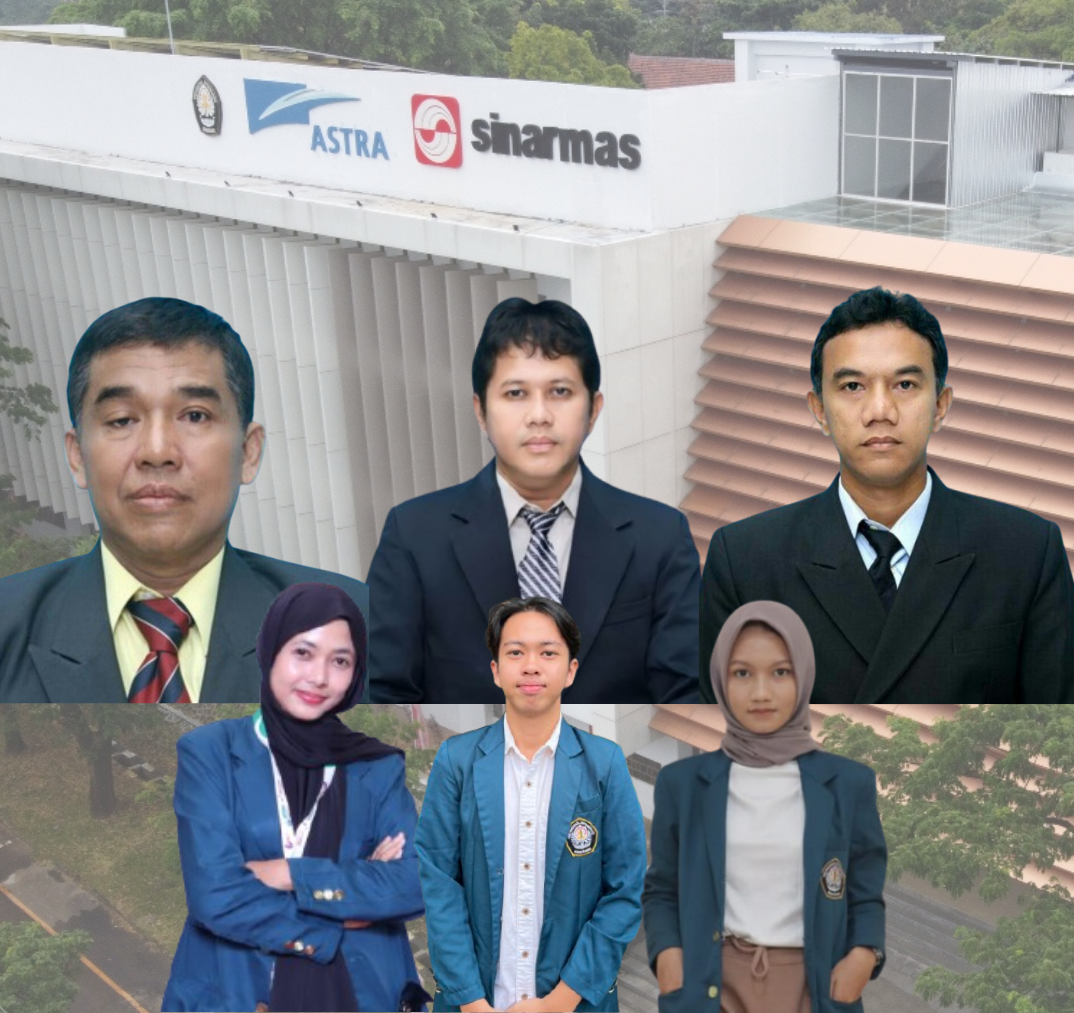Over time, coffee has evolved from a popular beverage consumed for its unique flavor and satisfaction into a lifestyle embraced by diverse communities around the globe. It is no surprise that coffee ranks as the second most traded commodity worldwide, generating global revenue of $68.5 billion, with 15% derived from instant coffee. However, one key issue faced by instant coffee consumers is its less appealing aroma compared to freshly brewed coffee.
To address this, continuous innovation and creativity have been pursued to improve the quality of instant coffee. The latest breakthrough comes from the Millennial Innovator Team, comprising lecturers and students from the Vocational School of Universitas Diponegoro (UNDIP). The research team, including Drs. Sutrisno, M.T.; Mohamad Endy Julianto, S.T., M.T.; and Didik Ariwibowo, S.T., M.T., collaborated with MBKM students Malika Pintanada Kaladinanty (Malika), Akbar Arsyadani (Akbar), and Maya Qisthina Gaissani (Maya) to develop aromatic nano instant coffee.
Sutrisno revealed that this Vocational Research on Downstream Applications is funded by the Kemendikbudristek for 2023–2025, under the title “Development of Nano Dispersion Steam–Vibro Nano Filtration Process for Premium Instant Coffee Production.” This consortium research involves multiple competencies and collaborations with various parties, including the Mechanical Design Engineering Program (RPM), Industrial Chemical Engineering Technology (TRKI) Vocational School UNDIP, Kopi Sirap Industry Partner, Bintang Baru Mas To Workshop, CV. Teguh Jaya Ungaran, and the Balai Industri Logam dan Kayu (BILK).
Endy highlighted the nutritional value of coffee, stating, “In 100 grams of coffee, there are 352 kilocalories, 17.4 grams of protein, 69 grams of carbohydrates, 1.3 grams of fat, 296 milligrams of calcium, 368 milligrams of phosphorus, and 4 milligrams of iron. It also contains minerals like niacin, thiamin, magnesium, phosphorus, folate, and manganese. A cup of coffee also contains 115 mg of caffeine, which can boost energy and improve physical performance.”
“While instant coffee is favored for its pleasant taste, long shelf life, and beneficial content, its aroma often falls short compared to freshly brewed coffee. To overcome this issue, research has been conducted to enhance the aroma of instant coffee. One breakthrough involves producing nano emulsion coffee extract, resulting in nano instant coffee,” added Didik Ariwibowo.
Endy elaborated on the use of sucrose monopalmitate (P90), modified starch (MS), and Tween 80 in retaining and releasing coffee aroma within an oil-in-water emulsion matrix (coffee oil as the flavor matrix) and during its application in instant coffee. This method aims to enrich the smell of instant coffee. Volatile coffee components are stabilized by P90, MS, and Tween 80 during nano-emulsion production and after freeze-drying.
“A crucial issue faced by the instant coffee industry is the rising production cost due to excessive energy usage for thermal evaporation and drying, reaching 40.8 MJ/kg of instant coffee. Therefore, the UNDIP Vocational Research Team aims to contribute by conducting downstream research to reduce production costs and improve the quality of instant coffee to a competitive premium level,” said Didik.
Malika noted that the development of subcritical extractor machines based on nano disperse steam and vibro nanofiltration, tested at the laboratory scale, has successfully reduced thermal evaporation and drying energy costs by up to 30%. “This innovation significantly addresses the critical issues faced by the instant coffee industry across Indonesia,” she remarked.
The premium instant coffee production, utilizing a high-efficiency subcritical water extraction system based on nano disperse steaming and vibro nanofiltration, has been patented under No. S00202310229. “Once the patent is granted, it is expected to be immediately adopted by instant coffee industry players. This research activity aims to pioneer competitive premium instant coffee production through well-proven technology with technology royalty sharing,” said Akbar.
Maya expressed that the research outcomes will drive national independence in premium instant coffee production, tap into high market potential, and master subcritical water extraction technology, making it an attractive investment prospect for the coffee industry. The commercialization of premium instant coffee and agricultural technologies that have been developed offer high potential for boosting economic growth.
“For society, the benefits of premium instant coffee production include creating new job opportunities, providing reliable and cost-effective technology for premium instant coffee production, and empowering farmers in coffee cultivation. This production system will positively impact cultural behaviors by optimizing all local agricultural potentials,” Sutrisno concluded. (Endy-SV; DHW-PR)


